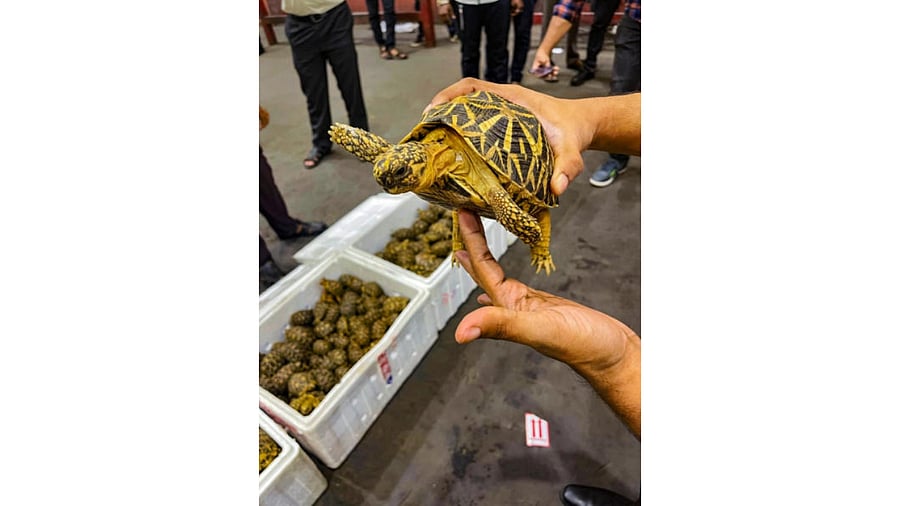
As per the Forest Department, an average of about 400 cases of wildlife crimes are registered every year in Karnataka.
Credit: Special arrangement
Bengaluru: After two years of work, the Karnataka Forest Department is looking forward to operationalising its wildlife forensic lab in Bengaluru, which will help in speedy resolution of wildlife crimes as well as conflict cases in the state by providing early results of DNA tests.
Last year, the government approved the setting up of the wildlife forensic lab at the State Forensic Science Laboratory in Madiwala at a cost of about Rs 3 crore. The facility, a long-pending demand from the Forest Department, is aimed at bringing to logical end the wildlife-related cases reported by the department, the forest cell of the Criminal Investigation Department (CID) as well as the Wildlife Crime Control Bureau.
As per the Forest Department, an average of about 400 cases of wildlife crimes are registered every year in Karnataka. The cases range from selling of animals as pets, wildlife parts as pendants or medicine and other purposes. The conviction, however, has remained low.
Over the last two years, the department has been working to prepare the back-end infrastructure to operationalise the lab. Officials also collected reference DNA samples for many of the Schedule I and II wildlife in trade.
"Timely prosecution is a key element for an effective crackdown against wildlife offences. The DNA analysis plays a key role in determining a species and establishing evidence in the court. Till now, we have been dependent on external agencies and labs for getting DNA results. This may take from several weeks to months as the agencies will have their own priorities. The new facility at Madiwala will help us in getting results in a few days," Additional Principal Chief Conservator of Forests (Wildlife) Kumar Pushkar said.
While cases of illegal possession, transportation or sale of elephant tusks, parts of tiger and leopard (skin, claw, etc.) are still detected, officials have observed that smaller mammals and reptiles account for a significant number of the cases. Last year, TRAFFIC and World Wildlife Fund reported that pangolin scales equating to 129 pangolins were seized in Karnataka during 2018-2022.
The lab will also play a key role in resolving even in the cases of wildlife conflicts. In the case of samples collected from a conflict site, the lab will help establish whether the officials have capture-rescued the right animals.
A senior official noted that the department needs to train its officers on handling samples for DNA analysis. For instance, after a woman was mauled by a leopard in Nelamangala taluk, the department rescued three leopards from the village but the DNA tests of the three leopards did not match with the sample collected from the site of the conflict. "About 200 people had walked around in the area, possibly contaminating the original sample. The foresters need to be trained on cordoning off such sites and also sensitised against contamination while collecting samples," he noted.
The Forest Department and the Police are expected to launch the lab within two months.